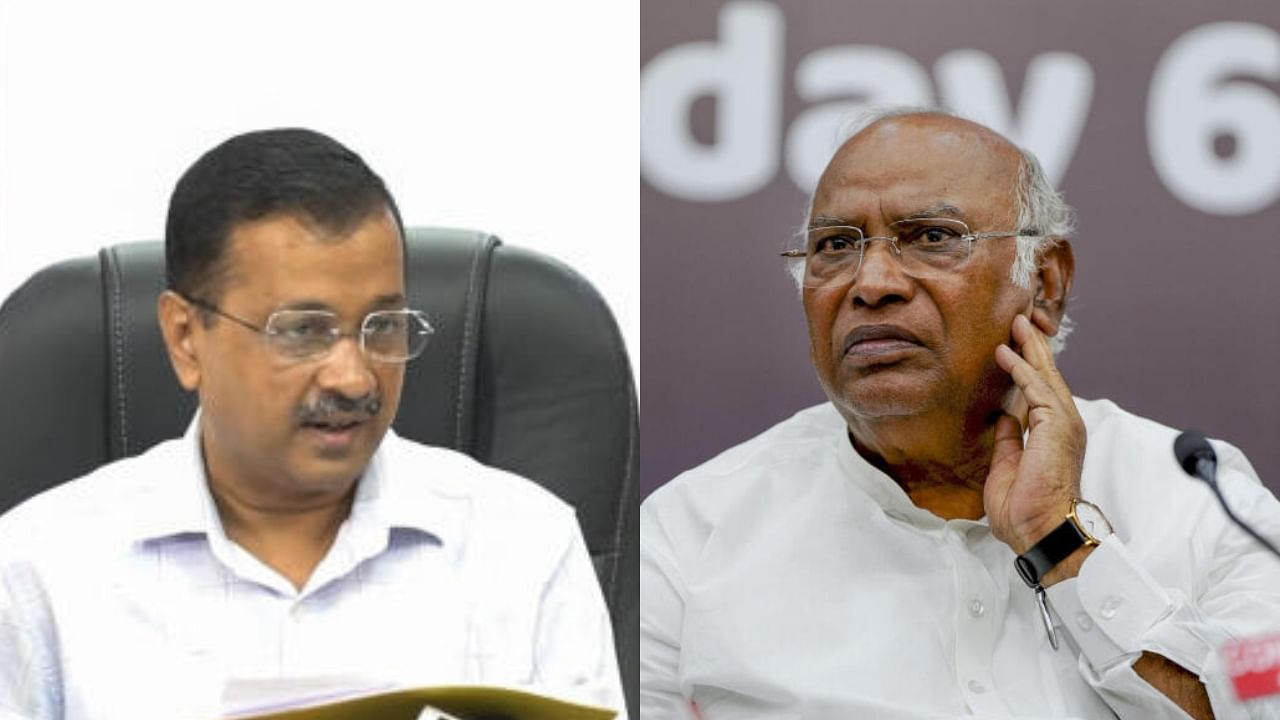
Signalling a possible political shift within the Opposition, Congress president Mallikarjun Kharge has telephoned AAP supremo and Delhi Chief Minister Arvind Kejriwal to speak about Opposition unity ahead of the 2024 Lok Sabha elections, soon after the latter received a summons from the CBI in the Delhi liquor policy case.
Sources said the telephone call took place on Friday evening after the news of the CBI summons to Kejriwal to appear before the agency on Sunday emerged. There was no official word on the telephonic conversation though the texture of the conversation changed against the background of the CBI summons as well as the Congress shedding its reluctance to reach out to the AAP.
Senior leaders said this was just the first step and one should not read too much into it, as more talks are needed. Kharge’s call to Kejriwal, especially when its Delhi unit has welcomed the CBI action, assumes significance as both the AAP and the Congress had steadfastly kept a distance from each other owing to the political situation in the national capital.
Soon after reports about Kharge’s call emerged, Congress’ Leader of Opposition in Punjab Partap Singh Bajwa tweeted that Kejriwal has “no right to speak on corruption” after the CBI summons and referred to the jailing of AAP leaders Manish Sisodia and Satyendar Jain.
Read | Centre corrupt from head to toe, CBI summon won't stop Kejriwal's fight against corruption: AAP
Though in Parliament both parties cooperated, AAP was very reluctant to share the dais with the Congress and had been venturing into the latter’s strongholds. However, AAP was among the parties that supported NCP chief Sharad Pawar when he suggested that Congress should take the lead in coordinating a meeting of Opposition leaders to forge unity among parties.
On several occasions, Congress had accused the AAP of being BJP’s B-Team and cutting into its votes. In Delhi and Punjab, the AAP had also decimated the Congress while its presence in Goa and Gujarat had been detrimental to Congress’ prospects.
However, there had been a subtle change in AAP’s approach to the Congress in the recent past with the Kejriwal-led party becoming one of the first Opposition parties to condemn Rahul Gandhi’s conviction in a defamation case and his subsequent disqualification from Lok Sabha.
At a joint Opposition press conference, AAP’s Rajya Sabha floor leader Sanjay Singh had referred to Rahul’s disqualification to the top Congress leader raising the Adani issue in Parliament. AAP also described the CBI summons to Kejriwal as a result of the Chief Minister linking Prime Minister Narendra Modi and Gautam Adani, in a way finding a common link to the travails of their top leaders.
The Congress response to the summons to Kejriwal also stands in contrast to what it did during former Deputy Chief Minister Manish Sisodia’s arrest in Delhi liquor policy case. While senior leaders had commented against Sisodia and AAP then, this time there was no statement either in support or in opposition though the Delhi unit, which had initially filed a complaint, issued a press release.
The central leaders of the two parties acknowledge that state-level leaders may make statements against each other, but they should not precipitate it at the national level. Congress is cautiously moving in this direction and has participated in an AAP initiative to approach the Supreme Court against the misuse of central agencies along with 12 other parties.
